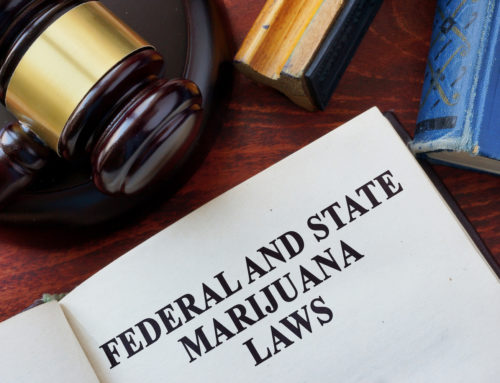 In most cases involving drug charges, a criminal defense attorney in California will always analyze whether the search and ultimate seizure of drugs was lawful. Under the Fourth Amendment to the United States Constitution, persons have the right to be free from unlawful searches and seizures. In most cases an unlawful search will occur where it was made without probable cause. Many times warrantless searches can be easier to challenge if the totality of the circumstances does not support a finding of probable cause for a search in California. It becomes more difficult to challenge the validity of a search warrant even if you allege that the warrant was based on a false statement that led to a magistrate finding probable cause and issuing a search warrant as evidenced in the recent California case of People v. Lee, 2nd Dis, November 17, 2015, B25508. If you are arrested based on the seizure of illegal drugs, guns or any other incriminating evidence, you should always be aware of your rights under the Fourth Amendment as it could result in the finding of an illegal search and the suppression of evidence in a criminal prosecution.
In most cases involving drug charges, a criminal defense attorney in California will always analyze whether the search and ultimate seizure of drugs was lawful. Under the Fourth Amendment to the United States Constitution, persons have the right to be free from unlawful searches and seizures. In most cases an unlawful search will occur where it was made without probable cause. Many times warrantless searches can be easier to challenge if the totality of the circumstances does not support a finding of probable cause for a search in California. It becomes more difficult to challenge the validity of a search warrant even if you allege that the warrant was based on a false statement that led to a magistrate finding probable cause and issuing a search warrant as evidenced in the recent California case of People v. Lee, 2nd Dis, November 17, 2015, B25508. If you are arrested based on the seizure of illegal drugs, guns or any other incriminating evidence, you should always be aware of your rights under the Fourth Amendment as it could result in the finding of an illegal search and the suppression of evidence in a criminal prosecution.
1. Warrantless Searches in California
Generally, the Fourth Amended to the United States Constitution requires law enforcement to obtain a search warrant before conducting the search of a person, home, or vehicle. However, the requirement of a search warrant has eroded through the years with numerous exceptions carved out by the United States Supreme Court. Such exceptions include but are not limited to: entry on to a property to preserve life or evidence; warrantless searches of vehicles, searches made pursuant to consent; the search of persons on probation or parole, searches at schools by school personnel, searches incident to a temporary detention and searches of areas where persons have no reasonable expectation of privacy such a searches of property from public airspace in a non-intrusive manner which have been found technically not to amount to searches.
In most all cases where a court determines that a person has a reasonable expectation of privacy such as in one’s home, the exceptions to a warrantless search mentioned above are always invoked by a prosecutor and/or law enforcement when a challenge to a warrantless search is made by a criminal attorney in a drug case. However, when a warrantless search is challenged by a defendant in a criminal case, the government has the burden to prove that the warrantless search was pursuant to a lawful exception set forth by the United States Supreme Court. Often times an experienced defense lawyer can show that the government cannot prove their burden to support a warrantless search and have incriminating evidence suppressed which, often times will lead to the dismissal or reduction of serious felony charges.
2. Challenging a Search Warrant in California
Searches in most criminal cases made pursuant to a warrant are valid only if probable cause existed when the judge issued the warrant. Time is an important element in determining probable cause in that a court will look at the freshness of the information in an affidavit is support of a search warrant to determine if probable cause exists. For instance, in the California Supreme Court case of Alexander v. Superior Court (1973) 9 Cal.3d 387, 393, the California Supreme Court found that a gap of more than one year between an observation of drugs on a property and the request for the issuance of a warrant makes the information too stale for a finding of probable cause for issuance of a warrant.
There are also situations where a search warrant and subsequent search can be challenged where the affidavit made in furtherance of the warrant included false statements or statements made in the reckless disregard for the truth. In such cases, it is the Defendant’s burden to make a substantial preliminary showing that a false statement or a reckless statement was knowingly included in a search warrant affidavit in support of a request for a warrant. In addition, a defendant in a criminal case, in order to challenge a search warrant in such situation, must also show that the false statement was necessary in the judge’s finding of probable cause. The same standard also applies to material omissions from an affidavit which would have negated probable cause. A hearing to challenge a warrant made on false statements is called a Franks hearing which follows the legal principles set forth in the United States Supreme Court case of Franks v. Delaware (1978) 438 U.S. 154, 98 SCt. 2674.
Besides the challenges to a warrant set forth above, there are other ways to challenge a search based on a warrant if you are arrested for a drug crime or any other felony or misdemeanor in California whether it be in Los Angeles, West Covina, Palmdale, Torrance, Pasadena or any other city in California. You should always consult with a criminal attorney that has the experience to defend such cases which often involve complex legal search and seizure laws.





